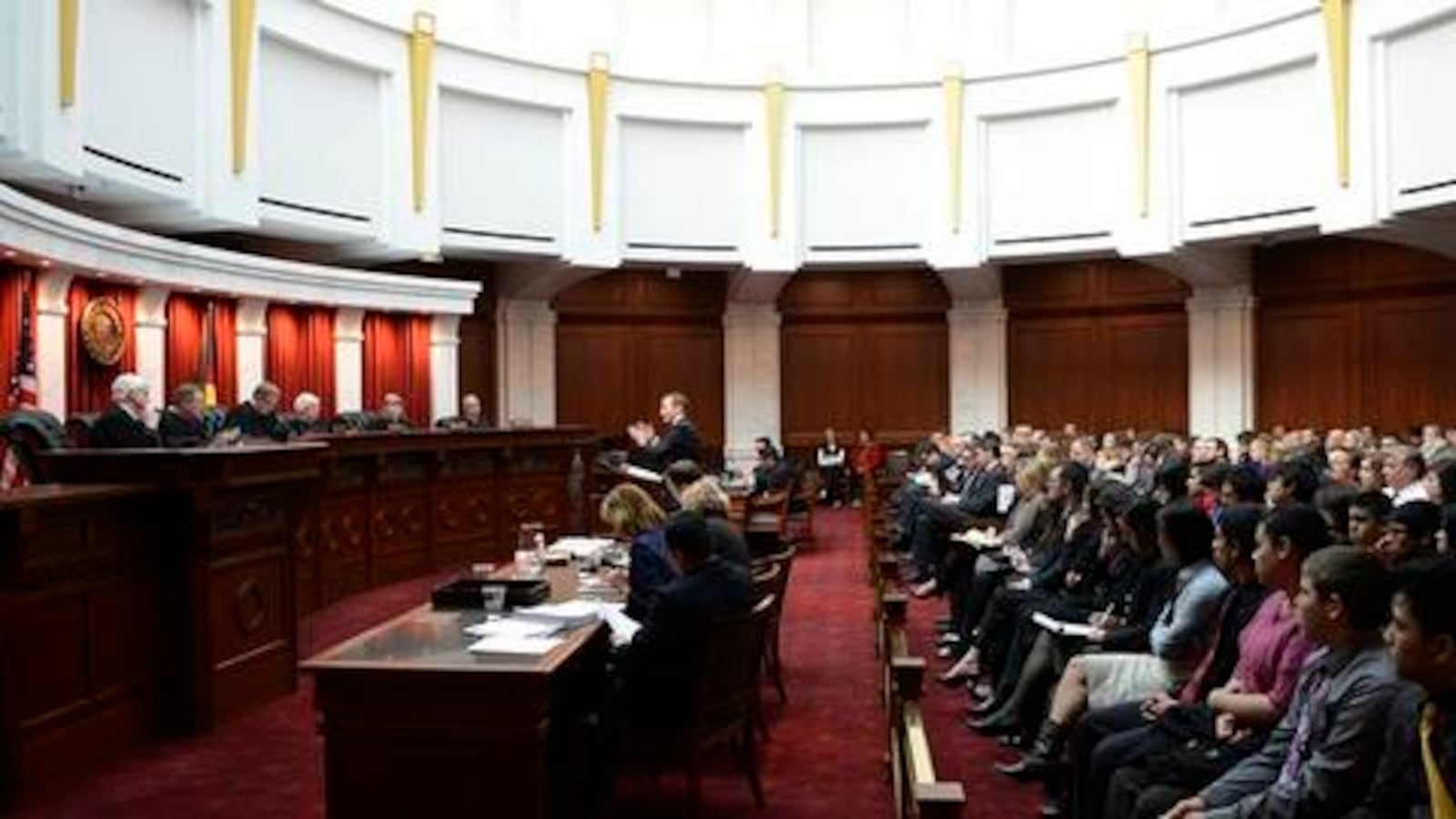A lawsuit brought by seven current and former teachers against Denver Public Schools will be taken up by the Colorado Supreme Court, the state’s highest court announced Monday.
The teachers allege DPS is misusing a part of the state’s landmark educator effectiveness law to get rid of teachers with non-probationary status, commonly known as tenure.
Before the law passed in 2010, non-probationary teachers who lost their positions due to circumstances such as decreasing student enrollment were assigned to open positions at other schools, a practice sometimes called “forced placement.”
District leaders didn’t like forced placement for several reasons. They argued that it most often happened at low-income schools, which led to the kids who need the most help disproportionately being taught by teachers who didn’t choose to be there.
So DPS changed its policy. Instead of permanently placing jobless teachers in open positions, the district now gives them temporary assignments with the expectation that the teachers will look for so-called “mutual consent” positions, meaning the principal agrees to hire them.
If a teacher doesn’t find such a position in a certain amount of time, he or she is placed on indefinite unpaid leave. The 2010 law, Senate Bill 191, allows that to happen.
The teachers and the teachers union say it’s unconstitutional to put non-probationary teachers on unpaid leave without cause and a hearing. The impacted teachers aren’t bad teachers and the law is being used to wrongly punish them, they argue.
In January 2014, the seven teachers and the Denver Classroom Teachers Association sued DPS and the State Board of Education (a formality common in lawsuits involving state education law) in Denver District Court. The district court sided with DPS and dismissed the case, ruling in part that putting a teacher on unpaid leave is different than firing her without due process.
The teachers appealed and won. The Colorado Court of Appeals reinstated the case, a decision that led DPS to ask for an opinion from the Colorado Supreme Court.
Now that the state’s high court has taken the case, the parties will be invited to file briefs.
In its announcement Monday, the Colorado Supreme Court said it will examine several issues, including whether the lawmakers who passed Senate Bill 191 “satisfied due process for teachers who were previously entitled to ‘forced placement.’”
“Denver Public Schools is pleased that the Colorado Supreme Court has accepted our request to hear this important case,” Acting Superintendent Susana Cordova said in a statement.
She added that DPS believes lawmakers were right to allow districts to end forced placement, especially because of its effects on high-poverty schools. “If districts must go back to ‘forced placement,’ then those students are the most likely to have teachers who are not the right fit forced into their schools,” she said.
Kerrie Dallman, the president of the Colorado Education Association, said the statewide teachers union is glad the case will be heard by the state’s highest court.
“We are confident the Colorado Supreme Court will reinforce long-standing commitments made by the courts and the legislature that honor the teaching profession and ensure Colorado school districts can no longer deprive students of experienced teachers,” she said in a statement.

